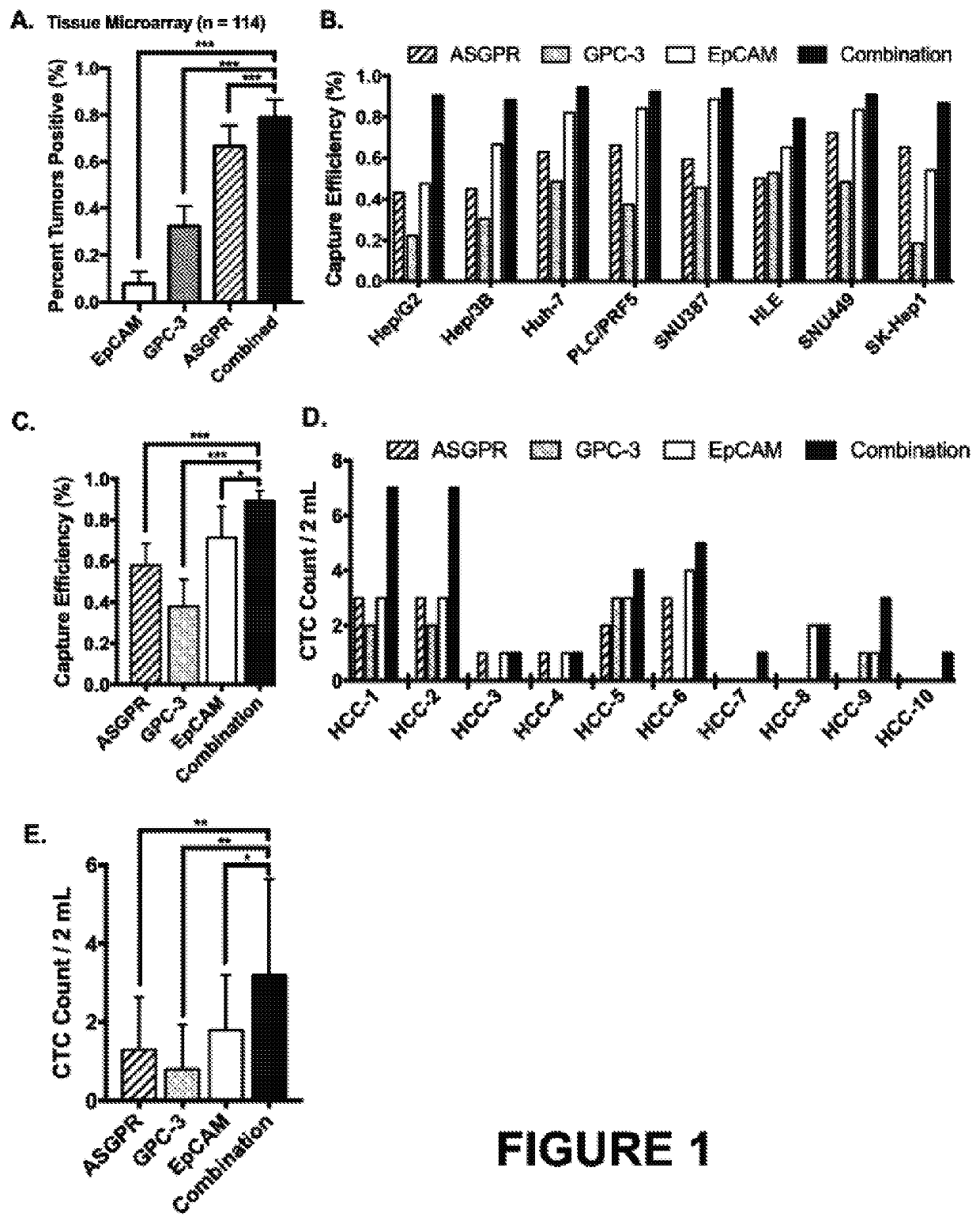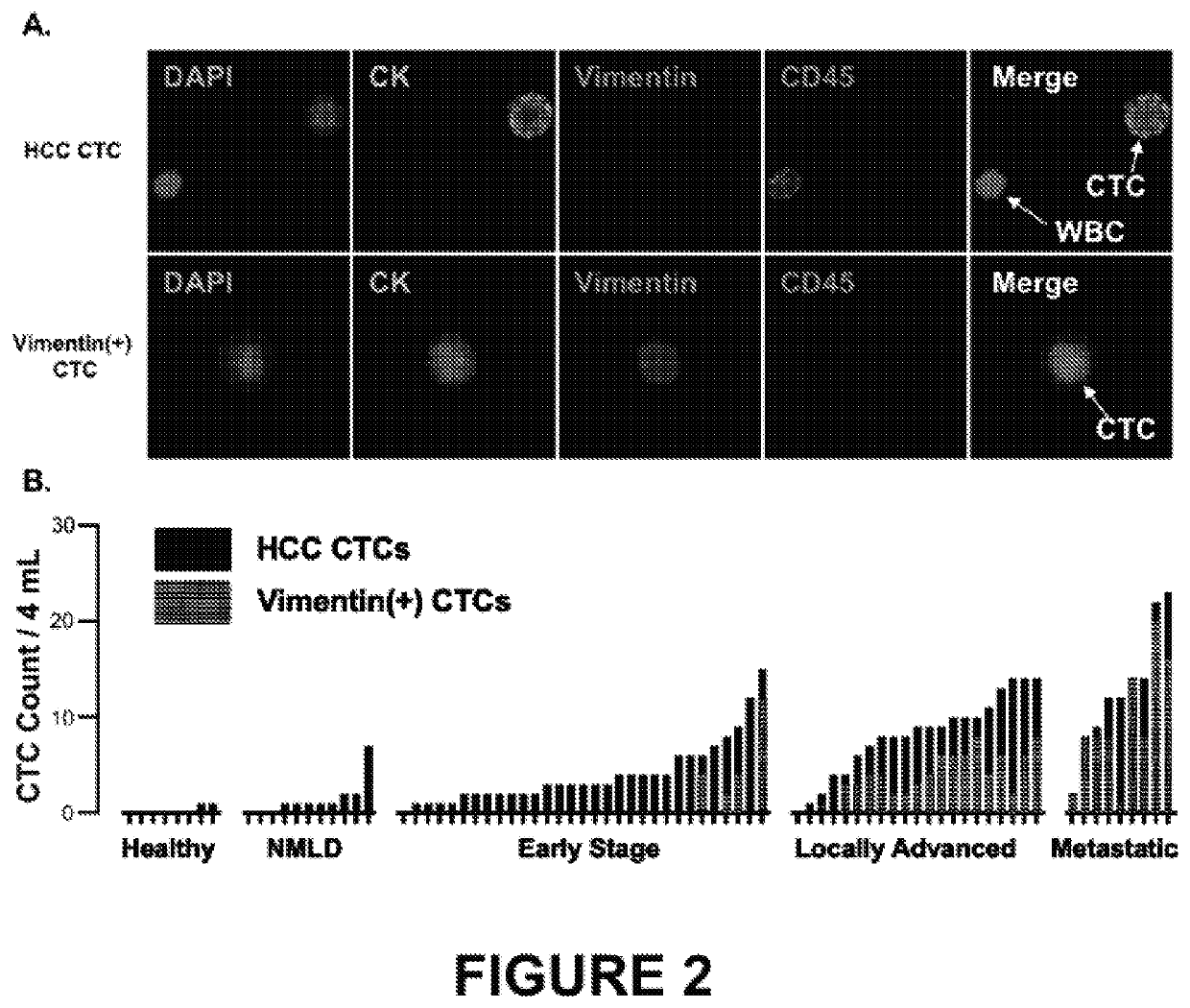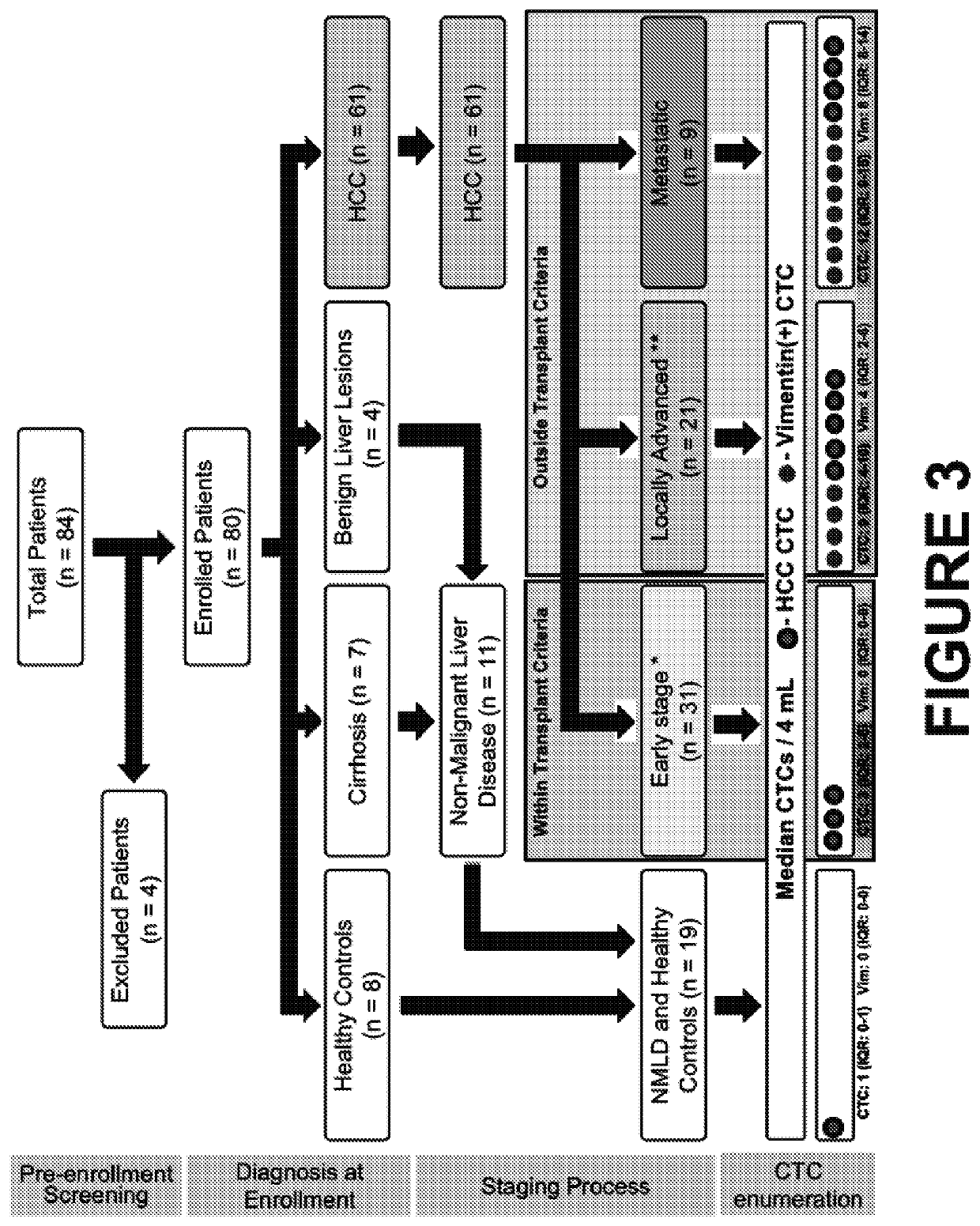Phenotypic profiling of hepatocellular carcinoma circulating tumor cells for treatment selection
a circulating tumor cell and hepatocellular carcinoma technology, applied in the field of phenotypic profiling of circulating tumor cells for treatment selection, can solve the problems of patient mortality and loss of scarce donor allografts
- Summary
- Abstract
- Description
- Claims
- Application Information
AI Technical Summary
Benefits of technology
Problems solved by technology
Method used
Image
Examples
examples
[0046]The following examples are presented to illustrate the present invention and to assist one of ordinary skill in making and using the same. The examples are not intended in any way to otherwise limit the scope of the invention.
Example: Multimarker Assay for the Phenotypic Profiling of Circulating Tumor Cells in Hepatocellular Carcinoma
[0047]This Example demonstrates a novel “liquid-biopsy” assay capable of detecting HCC circulating tumor cells (CTCs), and characterizing phenotypic subpopulations with prognostic significance. Utilizing HCC cell lines, a tissue microarray, and human blood samples, an antibody cocktail targeting the cell-surface markers asialoglycoprotein receptor (ASGPR), Glypican-3, and epithelial cell adhesion molecule (EpCAM) was optimized for HCC-CTC capture utilizing the NanoVelcro microfluidic assay. The ability of HCC-CTCs and vimentin(+)-CTCs (a subpopulation expressing an epithelial-to-mesenchymal phenotype) to accurately discriminate tumor stage, recurr...
PUM
| Property | Measurement | Unit |
|---|---|---|
| flow rate | aaaaa | aaaaa |
| flow rates | aaaaa | aaaaa |
| flow rates | aaaaa | aaaaa |
Abstract
Description
Claims
Application Information
 Login to View More
Login to View More - R&D
- Intellectual Property
- Life Sciences
- Materials
- Tech Scout
- Unparalleled Data Quality
- Higher Quality Content
- 60% Fewer Hallucinations
Browse by: Latest US Patents, China's latest patents, Technical Efficacy Thesaurus, Application Domain, Technology Topic, Popular Technical Reports.
© 2025 PatSnap. All rights reserved.Legal|Privacy policy|Modern Slavery Act Transparency Statement|Sitemap|About US| Contact US: help@patsnap.com



